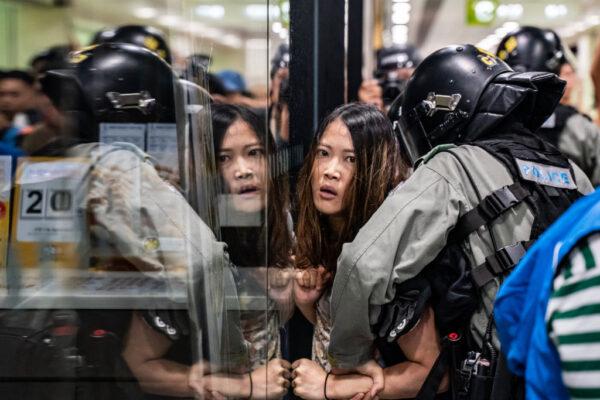The United Kingdom’s media regulator on May 26 found China’s English-language broadcaster, China Global Television Network (CGTN), in “serious failure of compliance” with UK impartiality laws during its coverage of pro-democracy protests in Hong Kong last year.
The regulator also said it was “minded” to sanction the Chinese state channel after hearing its defense, although its rules stipulate that CGTN has “at least” 15 working days to respond to the threat of sanctions before a final decision is made.
Protests initially broke out in Hong Kong last year in response to the Hong Kong government’s controversial Extradition Law Amendment Bill that would have allowed criminal suspects in Hong Kong to be sent to mainland China for trial. China is renowned for its deeply flawed justice system, which typically sees the Chinese Communist Party utilizing its power to steer court decisions and using police torture to gain confessions from supposed “criminals.”
The protests in Hong Kong were organized by the Anti-Extradition Law Amendment Bill Movement (AELABM) but continued for seven months as protesters called for democracy while criticizing the poor handling of the initial protests.
Footage of the protests regularly aired on multiple news outlets throughout the world, showing them often descending into violent clashes between Hong Kong police and protesters, with officials often resorting to firing tear gas and rubber bullets at protesters.

The Extradition Law Amendment Bill was eventually withdrawn on June 15, 2019 by Carrie Lam, the Chief Executive of the Hong Kong government, following months of unrest.
In its defense of its coverage, CGTN argued that “as the Chinese public broadcaster” it found it “particularly challenging” when trying to obtain alternative views “when reporting on the ground about the protests in Hong Kong,” because people demonstrating against the actions of the Chinese state were “hostile” and reluctant to talk to media from “mainland China and to Mandarin-speaking reporters.”
The channel said that it had included “brief contributions” from the “very small number” of protesters who had agreed to be involved in its programs, and referred to its broadcasts on Aug. 25, 2019, Sept. 6, 2019, and Sept. 18, 2019 as instances where viewpoints from protesters had been included in CGTN reports.
It added that Ofcom had not received any complaints from viewers about the five news items in question.
But Ofcom concluded that while it recognizes CGTN’s right to make programs that provide its audience with a so-called “Chinese perspective” on news events, it had failed to remain impartial in its coverage. The regulator noted too that while it understands CGTN had experienced difficulties in finding protesters willing to appear in its programs, there are a number of “editorial techniques” that could have been utilized instead in order to remain impartial.
Star China Media Limited holds the license for CGTN in the UK.




